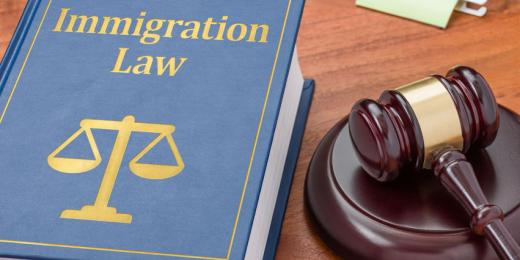What Should I Apply For When My Discretionary Leave To Remain Expires

Discretionary leave to remain (DLR) provides the Home Office with the power to grant a person leave to remain in the UK if their application falls outside the Immigration Rules but there are exceptional compassionate circumstances or there are other compelling reasons to grant leave.
When applying for DLR it is often best to instruct an Immigration lawyer to help you make the application. The threshold for DLR is high and requires extensive evidence.
Reasons the Home Office may grant DLR
The following situations below may result in DLR being granted. This list is not exhaustive as much depends on whether the applicant can present evidence of compassionate circumstances or other compelling reasons that leave should be granted.
Serious medical condition
Applicants for DLR who apply on the grounds of having a serious medical condition have a high threshold to meet, one that may require an experienced Immigration solicitor to provide the best evidence to support the case.
Some applications for DLR are made under Article 3 of the ECHR which states, “No one shall be subjected to torture or to inhuman or degrading treatment or punishment”.
The fact that an applicant’s medical condition has improved following treatment in the UK and may deteriorate if they are sent back to their home country does not in itself constitute inhumane treatment under Article 3.
Applicants who were in the final stages of a terminal illness, with no prospect of palliative care or family in their home country have been found to meet the threshold. In the case of GS (India) & Ors v The Secretary of State for the Home Department [2015] EWCA Civ 40, Lord Justice Laws confirmed the high threshold, stating that the case-law suggested that the ‘exceptional’ class of case is ‘confined to deathbed cases’.
Exceptional circumstances
Some exceptional circumstances may result in DLR being granted. These can include cases in which there are significant delays in decision making stage especially in matters involving family life under Article 8 of the ECHR. This may include those who have spent a significant period of time in the UK for reasons beyond their control.
Modern slavery
Although a person will not necessarily be granted DLR simply because they have been a victim of slavery or trafficking, sometime personal circumstances may allow for limited DLR to be granted. It may also be considered if the victim is helping police in their investigations or fighting for compensation.
How long is DLR granted for?
The length of time DLR is granted for usually depends on the facts of a particular case, but normally it is issued for 30 months at a time. This can be extended but the Home Office is under no obligation to do so if it is not satisfied that the conditions under which DLR was granted initially, remain in existence.
When can I apply for Indefinite Leave to Remain?
From 9th July 2012, those granted DLR must normally have completed a continuous period of at least 10 years’ residence before being eligible to apply for ILR.
If you were granted DLR before 9th January 2012, you may be able to apply for settlement after having accrued six years’ continuous DLR.
In summary
DLR applications often require expert advice from an experienced Immigration lawyer to ensure the best chance of success. The trend the UK government appears to be adopting regarding DLR (and most other Immigration applications) is one of finding any small reason to refuse the application. Because DLR is by its nature discretionary, this is an easy category for Immigration officials to refuse applications, especially when it comes to renewal.
An Immigration solicitor can provide you not only with the best advice regarding the submission of your application, but they will answer any questions the Home Office has and launch an appeal should your application be rejected.
OTS Solicitors is one of the most respected immigration law firms in London. Our immigration team dealing with DLR comprises of Smit Kumar, Hans Sok Appadu and Maryem Ahmed, all of whom would be happy to talk to you about applying for DLR, extending your leave or applying for settlement.
By making an appointment with one of our Immigration solicitors, you can be assured of receiving some of the best legal advice available in the UK today.
If you wish to discuss any of the points raised in this blog, please phone our London office on 0203 959 9123.



